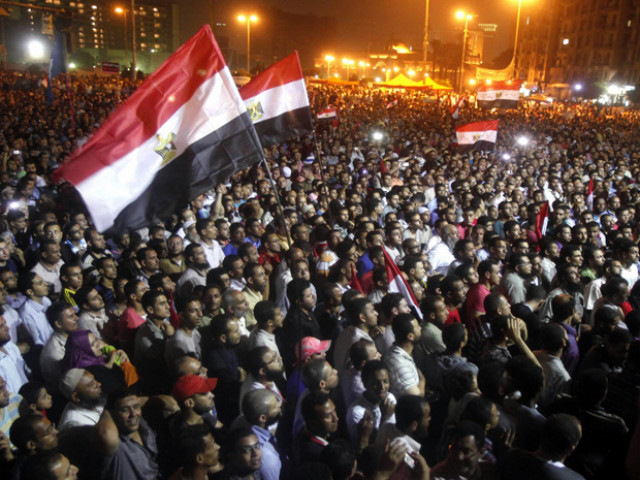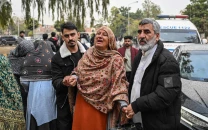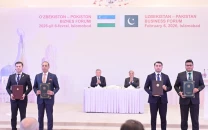A year onwards: Tahrir tumbles under weight of security state
Yehia Ghanem exemplifies how fear continues to hamper Egyptian lives .

"I am going to trial, standing tall, believing in what I did, and knowing that I am being tried for things that I did not do," Yehia Ghanem, senior editor at the state-run Al Ahram newspaper. PHOTO: REUTERS/FILE
What most observers failed to capture was the pulsating angst amongst the ordinary Egyptian because change, for which they fought and their comrades martyred, had not been achieved. Egypt, a year after Hosni Mubarak, was still the same.
The greatest reflection of this disenchantment and mistrust amongst citizens was the surprisingly low turnout in the election for the Shura. According to an estimate by the Carnegie Endowment for International Peace only 10% Egyptians casted their ballots in a democratic process for which the streets of Cairo had been bloodied just a year earlier.
Why this indifference to elections? What has not changed from the Egypt of Mubarak era?
The story of Yehia Ghanem, senior editor at the state-run Al Ahram newspaper and project director for The International Center of Journalists (ICFJ) exemplifies how the institutionalization of fear, victimisation and circumvention of justice, perpetuated under Mubarak’s autocratic regime, continues to influence the Egyptian state apparatus a year onwards.
“My 11-year old daughter called me crying over the phone to ask if I had taken a bribe from the US to harm the national security of Egypt. She questioned me because the investigating judges went public with the indictments without bothering to inform us” said Ghanem, who is accused amongst other Egyptians and Americans, of inciting violent demonstrations at the behest of the US after authorities raided American funded NGO’s.
Unlike the American employees of the NGO’s, who have been allowed to leave Egypt by authorities before the start of the trial, Egyptian’s like Ghanem who have advocated and fought for a democratic, open and just society now face charges of treason against the state.
Yet even now, Ghanem believes in rule of law. “I do hope that they will not seek this fictitious case. For if they do, many questions will remain in the eyes of the public about the proceedings, said Ghanem.
Many prominent Egyptians, including Elbaradi, have spoken out against the circumvention of judicial process for the accused Americans by the government. Recent comments by Senator John Mcain praising the Muslim Brotherhood, the majority party in the Shura, for their positive stance has shown that Egypt, as under Mubarak, continues to succumb to American pressure.
Meanwhile, the raids by the security apparatus are seen by pro-democracy groups as a means of quelling recent criticism of Egyptian establishment by employing the same high handed tactics which were perfected under Hosni Mubarak.
“In spite of all this, I am going to trial, standing tall, believing in what I did, and knowing that I am being tried for things that I did not do. I am going to trial with absolute trust in divine justice, in my country and in Egypt's judicial system. I do believe that Egypt is worthy of any sacrifice, even the soul itself, even if that means being dragged to criminal court on baseless charges. It is such a cheap price for a much better and more beautiful Egypt” says Ghanem whose story demonstrates that many of the ideals of the Egyptian Revolution are yet unattained.
It will take many years of continued pressure and commitment by pro-democracy groups to ensure that Egypt becomes the open, just and enlightened society which the millions of protestors on Tahrir Square and Ghanem dreamt of last year.



















COMMENTS
Comments are moderated and generally will be posted if they are on-topic and not abusive.
For more information, please see our Comments FAQ